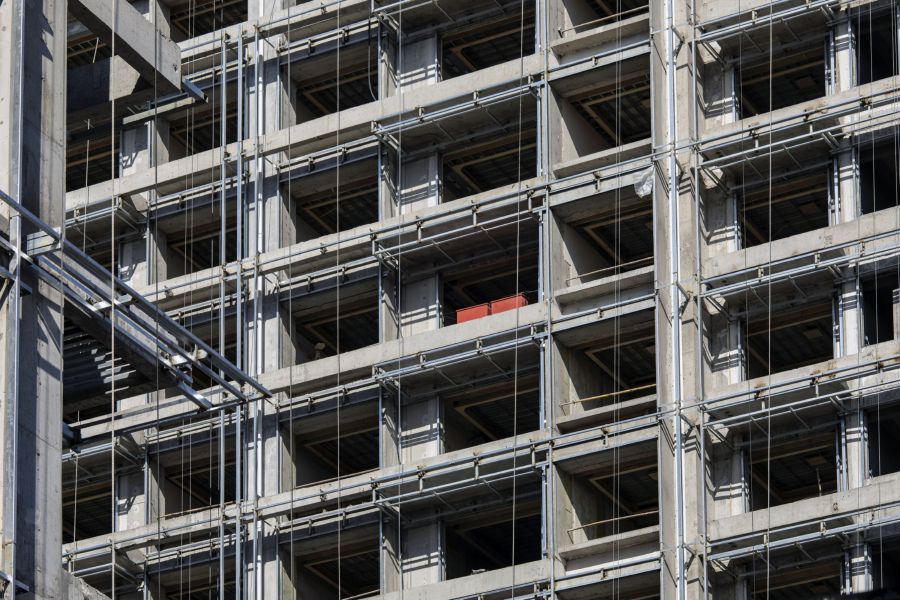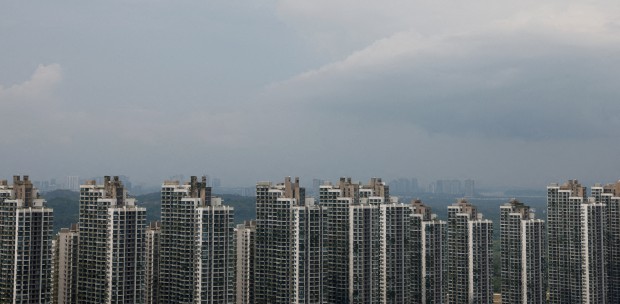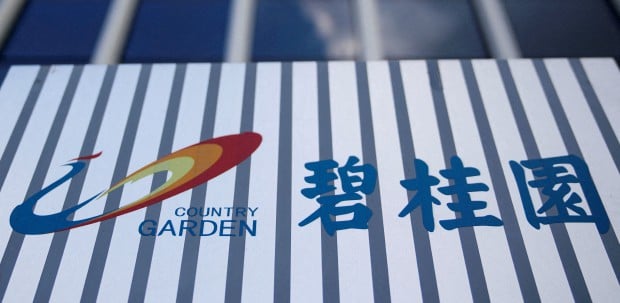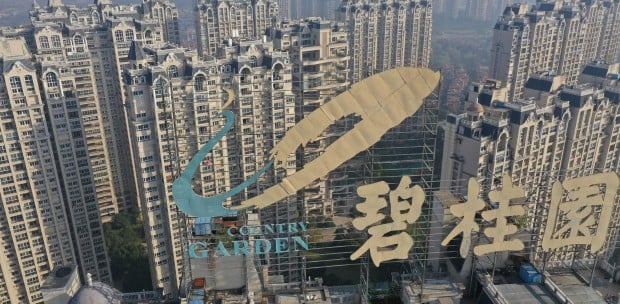The crisis engulfing China's property sector is impacting its biggest developer, with Country Garden Holdings Co.'s shares and bonds hammered amid fears that a reportedly failed fundraising effort may be a harbinger of waning confidence.
Country Garden is one of the few remaining large, better-quality private developers that had been largely unscathed by the liquidity crunch, even as peers such as Shimao Group Holdings Ltd. saw dramatic reversals in their credit ratings.
The firm is viewed as a bellwether for contagion risk, as unprecedented levels of stress in the offshore credit market threaten to drag good credits down with bad.
What's the company?
Since taking the top spot from China Evergrande Group in 2017, Country Garden has remained the nation's largest developer in China by contracted sales. It employs more than 200,000 people.
Headquartered in the southern city of Foshan in Guangdong province, the firm -- like China Evergrande Group -- has focused in recent years on building housing developments in lower-tier cities.
It has relied heavily on access to funding in the offshore credit market, like many peers that binged on debt to fuel growth. It has the largest pool of outstanding dollar bonds among China's biggest property firms, excluding defaulters, with some US$11.7 billion outstanding, Bloomberg-compiled data show.
Founding chairman Yeung Kwok Keung transferred his controlling stake to his daughter Yang Huiyan in 2005. She is now the firm's vice chairman and is the richest woman in China, according to a Bloomberg Billionaire Index.
What's happening?
Some of Country Garden's dollar notes plunged to record lows in the wake of a report that the firm failed to win sufficient investor support for a possible convertible bond deal. Longer-dated bonds were trading as low as 69 cents on the dollar as of late Friday.
The developer has been relatively resilient in the face of the liquidity crisis sparked by a government crackdown on excessive borrowing by builders and housing market speculation, and was unscathed by the crisis at industry giant Evergrande.
While Country Garden isn't expected to face imminent repayment pressure -- it has US$1.1 billion of dollar bonds due this year and had 186 billion yuan (US$29.3 billion) of available cash as of June last year -- risks may emerge if it's seen to have limited access to funding.
Why does it matter?
Any sign of doubt in the firm's capacity to weather liquidity stress risks may prompt a widespread repricing of other higher-quality developers.
With more than 3,000 housing projects located in almost every province in China, Country Garden's financial health has immense economic and social consequences. If the firm starts showing signs of stress, it will severely damage already fragile investor and homebuyer confidence, posing threats to China's economy and even social stability.
More than 60 per cent of Country Garden's contracted sales in mainland China came from the third and fourth tier cities, according to its 2021 interim report. Demand in lower-tier areas may significantly weaken in 2022, according to a forecast by Fitch analysts. Being a "pure developer", it is less flexible when it comes to raising cash by selling assets, according to Bloomberg Intelligence analyst Andrew Chan.
What does the company say?
Country Garden's strategy is to manage its current assets effectively, in addition to expanding its business, the company said in response to inquiries from Bloomberg News. "The firm is experiencing less volatility than the overall market" amid a broader market downturn, it said.
The developer sold bonds and asset-backed securities in the local market in December, reflecting support from both investors and regulators, and maintained its ratings at all three major rating firms last year, according to the comments.
What do the ratings firms and analysts say?





